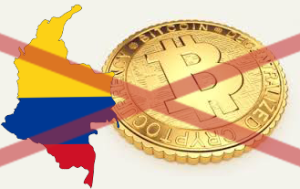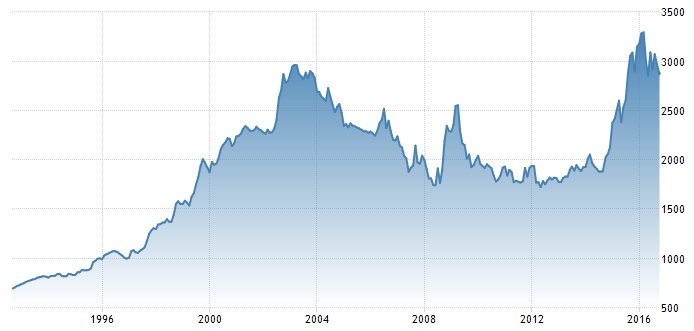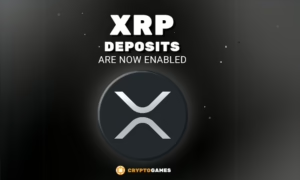Cryptocurrency Regulation In Colombia Spells Disaster

The central bank of Colombia – El Banco de la República – has released a document detailing the legal constraints of using, trading and holding bitcoin or other cryptocurrencies in Colombia. In the vein of an increasingly obsolete stance – under review now even in China and Russia, which were initially opposed to bitcoin – it declares that cryptocurrencies are basically not legal tender in Colombia, and cannot be sold or bought legally within its territory. This constitutes a very narrow view on what cryptocurrencies are and the multiplicity of roles they can fulfil in the 21st century economy. The bank’s official statement also reveals some pretty embarrassing misconceptions about currency fundamentals, but mostly it spells disaster for Colombia, its citizens and its economy.
The Bank’s Official Statement
The basic points set forth by this online statement – called JDS 14696 – are the following:
- Cryptocurrencies are not considered to belong, conceptually, with other currencies since they are not backed by any government and thus lack intrinsic value.
- It is illegal to buy or sell cryptocurrencies in Colombia – at least “formally illegal” – nor can they be bought or sold legally by a resident in Colombia if the purchase or sale take place abroad, unless the assets stay abroad and the purchase or sale is done within the legal framework of the host country.
- The only “monetary unit” – currency – in Colombia is the Colombian Peso – COP – as issued by El Banco de la República.
- Bitcoin is not a currency in Colombia and no one is compelled to accept it as a medium of exchange in order to settle any debt or other financial obligations.
- Since bitcoin is not a currency in Colombia, it can’t be used legally according to the rules and regulations governing foreign exchange services.
El Banco de la República and its Conceptual Folly
It is clear that cryptocurrencies mean different things to different people. Bitcoin for instance, certainly behaves in a much different manner than any fiat – traditional – currency, so many take it as a commodity for example. Colombia’s central bank doesn’t even contemplate the possibility of doing so, choosing instead to shut it out of the economy by framing it negatively and basing its claims on an IMF report.
Within that negative framework, the bank also incurs in significant conceptual mistakes. Describing cryptocurrencies as assets devoid of intrinsic value, is at least debatable if not outright erroneous. Intrinsic value is derived from the underlying perception of value, from both tangible and intangible factors – to paraphrase Investopedia. As such, there is no more intrinsic value in a $50,000 Peso note, than there is in 1 BTC. In fact, purists will argue that bitcoin has more intrinsic value than a currency ravaged by high inflation, which has seen its value decline by more than 50% over the last 2 years.

The very fact that bitcoin relies on blockchain technology, which makes it almost impossible to counterfeit, gives the cryptocurrency intrinsic value that cannot be matched by the Colombian peso or any other traditional currency. The bank’s lack of conceptual clarity shines through its lack of competence to deal with basic concepts that will dominate the economy of the 21st century. Even the Colombian peso could be one day issued and controlled through blockchain technology, and become 100% digital.
Beyond that, allowing people who reside in Colombia to purchase cryptocurrencies through foreign intermediaries but not locally, is self-defeating. Cryptocurrencies reside in the internet, which has no boundaries. Therefore allowing someone to purchase them and hold them according to the laws and regulations of other countries is pointless because they can easily move them “into” Colombia with a single click.
The lack of rationality in this statement goes even further. Colombian regulation allows foreign currency exchange services to buy or sell foreign currency as long as it is backed by a central bank elsewhere. It forbids the sale or purchase of cryptocurrencies arguing that they are dangerous because they are not backed by a central bank, thus attempting to argue that in doing so, it is protecting Colombians from undue risk. This means that in Colombia it would be legal to buy and sell Venezuelan Bolivars but not bitcoin. The regulators would rather protect Colombians by letting them buy a foreign currency that is worth less than the paper it is printed on, than endangering them by allowing a regulated purchase and sale of a digital asset that has proven to be more resilient.
Colombia Distances itself from FinTech and the Economy of the Future
Through its conceptual folly and the rejection of cryptocurrencies, the central bank of Colombia is effectively depriving Colombian citizens from participating freely in the economy of the future and is also failing to protect their interests. With the development of networks such as Ethereum and Steemit, cryptocurrencies have now moved beyond their initial role as a medium of P2P exchange. Rejecting them all through a negative regulatory framework will preclude Colombian brains from developing Dapps, ICO worthy projects, and participating in the FinTech revolution, at least as long as they stay or keep their projects in Colombia. This could add to the burden of an already acute ‘brain drain’ problem that persists in the South American country.
Economic Inclusion is also a Victim of Colombia’s Central Bank
Additionally, the role of cryptocurrencies such as bitcoin may go well beyond pure P2P transactions. Bitcoin, particularly, could be used to provide banking services to all those who do not have access to them. Colombia desperately needs to increase financial service coverage and reduce banking costs. According to World Bank policy working paper 3834 of 2006, as much as 61% of the population in the country lacked access to a bank account. Even if that number is significantly lower today, millions of Colombians still belong to the ranks of the “unbanked”. Bitcoin can help to change that situation, and it can also reduce banking costs for the people who need it the most. Keeping bitcoin out of Colombia will only limit the tools available to fight the calamities of economic exclusion and wealth concentration.
It is up to Colombians
This dire situation that stems from the lack of comprehension about cryptocurrencies, FinTech and economic fundamentals in the 21st century, can change if civil society in Colombia exerts pressure on elected officials. In Russia and China, which initially opposed bitcoin and other cryptocurrencies, the system doesn’t allow for civil society to pressure the government to change its position. Nevertheless, in both countries, the central banks have slowly walked back from their initial rejection of cryptocurrencies. The same might happen in Colombia, eventually, but if the people let this issue run its course without voicing their opinion, by the time regulation changes, the country will be light years behind its global peers.
Click here to read the official statement from Colombia’s central bank.
Click here to read the World Bank policy working paper quoted above.
Update
On October 2nd, 2016, a referendum to ratify a peace agreement between the Colombian government and the FARC guerrilla, was defeated by a very narrow margin. With the rejection of the peace deal – signed by both parties on September 26th, 2016 – there is officially no legal framework within which the peace agreement can be implemented. There is now a high degree of uncertainty in terms of what will happen next, which has the potential to scare away foreign investors. As a result, the Colombian Peso might weaken further against the USD, making the case for bitcoin as one of the instruments that Colombians could use to fight depreciation, even stronger.







